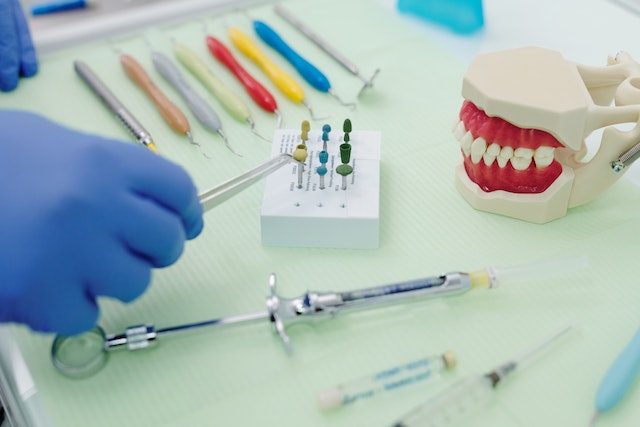Temporomandibular Joint (TMJ) disorder is a condition that involves your jaw joints and the muscles involved in moving your jaw. These disorders can lead to pain and discomfort, impacting your quality of life. TMJ disorder can be managed effectively with proper early pathophysiology and treatment as explained by a Merced dentist. The purpose of this article is to inform those who live in Merced more about how to recognize and treat TMJ disorders.
What Are TMJ Disorders?
The temporomandibular joints — which attach your jawbone to your skull — position your jaw so that you can move it up and down and side to side. This joint is important in actions like speaking, chewing, and yawning. TMJ disorders can stem from injury, arthritis, genetics, or jaw misalignment.
Signs that You are Suffering From TMJ Disorders
The symptoms of TMJ disorders can vary, both in type and severity. Typical signs to be on the lookout for are:
-
Jaw Pain or Tenderness: Pain in the jaw joint area, particularly around the TMJ, is the foremost symptom.
-
Problem with chewing: If you are feeling pain while chewing or biting, it may indicate TMJ.
-
Clicking or Popping Sounds: If you hear clicking, popping, or grating sounds when you open or close your jaw, this can be a signal that you are suffering from TMJ disorders.
-
Jaw Lock: Trouble or inability to open or close your mouth completely.
-
Facial Pain: Pain or discomfort radiating to the face, neck, or shoulders.
-
Ear Pain: Pain or fullness in the ears (without an infection).
Causes of TMJ Disorders
Because TMJ disorders are often preventable and reversed, understanding the root causes can be helpful in both teeth clenching and bruxism treatment. Common causes include:
-
Jaw injury: Physical trauma to the jaw or head can cause TMJ disorders.
-
Arthritis: The TMJ can be affected by both osteoarthritis as well as rheumatoid arthritis.
-
Misaligned Jaw: An unaligned jaw or teeth can cause TMJ problems.
-
Bruxism: As the teeth grind or clench—often while sleeping—it places undue strain on the TMJ.
-
Stress: More stress means more muscle tension and clenching of the jaw.
Diagnosing TMJ Disorders
The first step to addressing a possible TMJ disorder is getting a professional diagnosis. Your dentist or a TMJ specialist in Merced will perform an extensive examination, which may include:
-
Medical History Review: Discuss your symptoms, medical history, and possible causes.
-
Physical examination: Assessing range of motion, discomfort, and tenderness in the jaw.
-
Imaging Tests: X-rays, CTs, or MRIs may provide a clear picture of the TMJ and surrounding structures.

Options for TMJ Disorder Treatment
The severity and underlying etiology of TMJ issues determine the course of treatment. Typical forms of treatment consist of:
Techniques for Self-Care:
-
Pain and inflammation: Can be lessened by applying heat or cold packs.
-
Dietary Adjustments: To relieve pressure on the TMJ, eat soft meals instead of firm or chewy ones.
-
Jaw Exercises: The jaw muscles can be stretched and strengthened with mild exercises.
If you have TMJ disorder symptoms, be sure to discuss them with a healthcare provider so you can receive an accurate diagnosis and treatment plan. Various medical and dental professionals in Merced specializing in TMJ disorders can help you get the care you need.
In conclusion, TMJ disorders can affect your life quality drastically, and you are always advised to seek proper diagnosis and treatment to manage the disease efficiently. With early recognition and prompt treatment by a professional, residents of Merced can be free from TMJ disorders and enjoy a better quality of life. So, take your self-care, avoid stress, and listen to your health professional so that your jaw function remains healthy.

